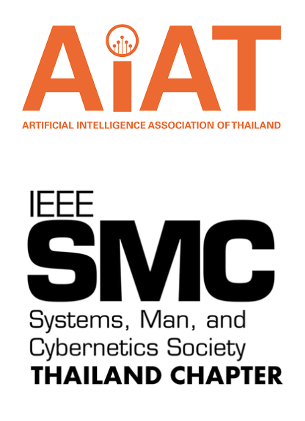
Publication Ethics
Journal of Intelligent Informatics and Smart Technology (JIIST)
The Journal of Intelligent Informatics and Smart Technology (JIIST) is dedicated to maintaining the highest ethical standards in academic publishing. Our policies align with the principles set forth by the Committee on Publication Ethics (COPE) and other international guidelines. All participants in the publication process, including authors, reviewers, and editors, are expected to uphold these ethical principles to ensure the integrity and credibility of published research.
1. Ethics for Authors
-
Originality and Plagiarism: Authors must submit original work that has not been previously published or is under consideration elsewhere. Plagiarism, including self-plagiarism, is strictly prohibited. Proper citation and acknowledgment of all sources are required.
-
Authorship and Contributions: Only those who have made substantial contributions to the conception, design, execution, or interpretation of the research should be listed as authors. All authors must approve the final manuscript before submission.
-
Data Integrity and Fabrication: Authors must present accurate and reliable data. Any form of data manipulation, fabrication, or falsification is considered unethical and unacceptable.
-
Ethical Research Compliance: Research involving human subjects, animals, or sensitive data must comply with ethical guidelines, including institutional review board (IRB) approvals where applicable.
-
Conflict of Interest Disclosure: Authors must disclose any financial, institutional, or personal conflicts of interest that may influence the research or its interpretation.
-
Transparency and Reproducibility: Authors must ensure transparency in methodology and provide raw data for verification if requested. Reproducibility is essential for maintaining research credibility.
-
Corrections and Retractions: If an author discovers a significant error in their published work, they must inform the journal immediately to facilitate corrections or retractions as necessary.
2. Ethics for Reviewers
-
Confidentiality: Reviewers must maintain the confidentiality of all submitted manuscripts and must not disclose any information to unauthorized parties.
-
Impartial and Constructive Feedback: Reviews should be fair, objective, and constructive, focusing on academic merit without personal bias.
-
Timeliness and Accountability: Reviewers must complete their assessments within the given timeframe. If they are unable to meet the deadline, they should notify the editorial office promptly.
-
Identification of Ethical Concerns: Reviewers should report suspected ethical misconduct, plagiarism, or data fabrication to the editor.
-
Conflict of Interest Disclosure: Reviewers must disclose any potential conflicts of interest, including professional or financial relationships with the authors or institutions affiliated with the manuscript.
-
Scientific Rigor: Reviewers should ensure that submitted manuscripts meet the highest standards of methodological rigor, originality, and contribution to the field.
3. Ethics for Editors
-
Fair and Transparent Decision-Making: Editors must evaluate manuscripts based on scientific quality, originality, and relevance, free from bias.
-
Confidentiality: Editors must maintain strict confidentiality regarding submitted manuscripts, sharing information only with relevant stakeholders involved in the review process.
-
Handling of Research Misconduct: Editors are responsible for investigating and addressing allegations of ethical violations, including plagiarism, data falsification, and conflicts of interest.
-
Conflict of Interest Management: Editors must recuse themselves from handling any manuscript in which they have a conflict of interest and delegate the review to another editorial board member.
-
Transparency and Adherence to Guidelines: Editors must ensure clear communication of journal policies and ethical guidelines to authors, reviewers, and readers.
-
Corrections and Retractions: Editors must facilitate the correction or retraction of articles when ethical issues or research errors are identified post-publication.
-
Adherence to International Standards: Editors must ensure that all published content aligns with the ethical requirements of Scopus, COPE, WAME, and ICMJE.
JIIST is dedicated to maintaining the highest ethical standards in scholarly publishing. All stakeholders are expected to comply with these principles to ensure research integrity and transparency. Any suspected ethical violations should be reported to the editorial office for investigation.
By submitting to JIIST, authors, reviewers, and editors agree to abide by these ethical policies, supporting the journal’s commitment to quality, credibility, and international compliance.


